Accolades
2022 Early Career Research Award (ECRA)
Each academic year the College of Arts and Sciences recognizes and rewards faculty members with outstanding research programs in the early stages of their career. Recipients receive $500 to be used for research (not for salary) and a plaque as tokens of this recognition. For consideration, a candidate for one of these awards must be a tenure-track faculty member in the College of Arts and Sciences at the University of Memphis, be employed for no more than five academic years in that position, and be no more than eight years beyond receiving the terminal degree, prior to the semester of application. No past recipient will be eligible to receive the award again.
Shawn Paul Brown, Department of Biological Sciences 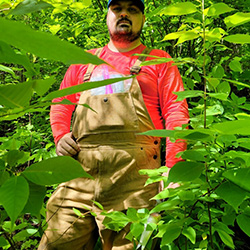
Shawn Paul Brown, Assistant Professor in the Department of Biological Sciences came to the University of Memphis in 2017. He earned his PhD from Kansas State University in the Division of Biology and a BS from University of Oregon in Biology.
Brown's work as a microbial ecologist examines the interactions between microbial communities and larger-scale ecological processes. He studies the impacts of community assembly patterns and perturbations on fungal and bacterial communities to understand how these microbial components play major roles in allowing ecosystems to function.
His active research focuses on numerous systems including snow and glacial microbiology, wildfire ecology, invasive plants, biocontrol, biofilms, and agricultural systems among others. All publications can be found at www.microbialmemphis.com
He is a professional member of: Mycological Society of America, British Ecological Society, Association of Southeastern Biologists, the KY-TN Branch of the American Society for Microbiology.
Amy Cook, Department of Computer Science 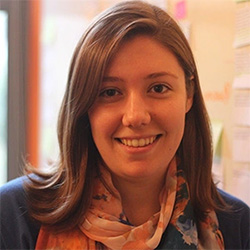
Amy Cook is an Assistant Professor in the Computer Science department of the University of Memphis. Prior to joining the faculty in 2019, she earned a B.S. in Computer Science and
Math from Emory University, an M.S. in Human Computer Interaction from Carnegie Mellon
University, and a Ph.D. in Human Computer Interaction at Carnegie Mellon University.
Cook’s research combines human-computer interaction and computer science education
to explore how to support student success in computing and STEM. Using a student-centered
approach, she combines pedagogical methods and technology to design tools that promote
interactive learning. She has a secondary interest in games research. She teaches
undergraduate and graduate courses in Human Computer Interaction, and the undergraduate
Capstone course.
She also plays Ultimate frisbee and is the faculty sponsor for the UofM Men’s Ultimate team and the Women in Computing student group.
Melissa Hirschi, School of Social Work 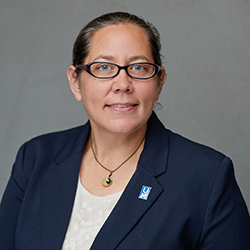
Melissa Hirschi is an Assistant Professor in the School of Social Work. Prior to joining the faculty in 2017, she earned a B.S. in psychology from Brigham Young University, an MSW from Boston University, and a joint PhD in sociology and social work from Boston University.
Her research focuses on the intersection of first responders and individuals living with mental illness, including their role as frontline mental health workers. She is also interested in understanding power, including the role of power in racism, oppression, and stigma. In addition, she does work with individuals living with HIV and children with special healthcare needs, focusing on improving access, health outcomes, and social justice.
She has taught courses across bachelor, master, and doctorate level within the school of social work and is currently the DSW coordinator. Dr. Hirschi is also a Licensed Clinical Social Worker.
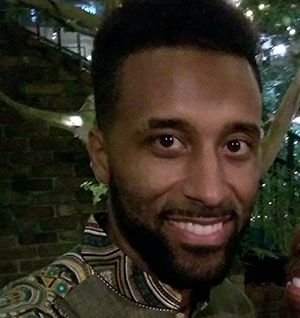 Brian Kwoba, Department of History
Brian Kwoba, Department of History
Brian Kwoba is an assistant professor of African American history. He came to the University of Memphis Department of History in the fall of 2017 after earning a PhD at the University of Oxford in 2016.
Dr. Kwoba has a history of activism in social movements for LGBT equality, climate justice, Black lives, and world peace. He was a co-founder of the Rhodes Must Fall in Oxford movement to decolonize education, and also co-editor of the movement's anthology Rhodes Must Fall: The Struggle to Decolonize the Racist Heart of Empire. Dr. Kwoba is also currently a scholar in residence at the New York Public Library's Schomburg Center for Research in Black Culture, where he is working on a book on Hubert Henry Harrison, the unsung "father of Harlem radicalism."
I teach courses on African American history, Civil Rights and Black Power, US history, and Histories of Black Radicalism. My first peer-reviewed article came out last year (Journal of African American HIstory, Summer 2020) entitled "Pebbles and Ripples: Hubert Harrison and the Rise of the Garvey Movement."
Elizabeth Lane, Department of English 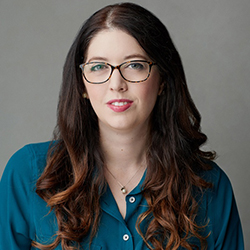
Dr. Liz Lane is an Assistant Professor and Coordinator of the Writing, Rhetoric, and Technical Communication (WRTC) concentration in the Department of English. Prior to joining the faculty in 2017, she earned a BA in Writing, Rhetoric, and Communication at Transylvania University, an MA in Writing, Rhetoric, and Discourse at DePaul University, and a PhD in English- Rhetoric and Composition at Purdue University.
Dr. Lane’s research explores the intersections of activism in digital spaces, feminism, and technical communication. Her work has appeared in Peitho, Computers and Composition, Composition Studies, Ada: A Journal of Gender, New Media, and Technology, and edited collections. She is also the co-founder and former co-managing editor of Spark: a 4C4Equality Journal, an open access, peer reviewed journal of activist rhetorics in writing studies, which can be found at sparkactivism.com. Dr. Lane teaches courses in WRTC, including graduate level seminars on the theory and practice of online teaching, technical communication theory, and document and web design. At the undergraduate level, she teaches courses in technical writing and engineering communication, editing, and design.
She is a member of the Special Interest Group on the Design of Communication (SIGDOC), NCTE, and the Rhetoric Society of America (RSA).
SunAh Laybourn, Department of Sociology 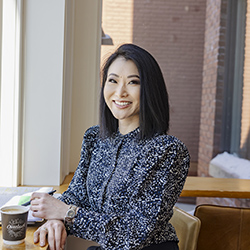
After receiving her PhD in Sociology from the Univeristy of Maryland (2018), Dr. SunAh Laybourn joined the Sociology Department at the University of Memphis. She is excited to return to her undergraduate alma mater as an Assistant Professor. Dr. Laybourn is also an Affiliate Faculty Member for the Center for Workplace Diversity & Inclusion and a former Academic Research Fellow of the Benjamin L. Hooks Institute for Social Change. Her research examines racialization processes and racial and ethnic identity formation. Dr. Laybourn is the co-author of Diversity in Black-Greek Letter Organizations: Breaking the Line (Routledge 2018). Her work has been published in Social Problems, Sociology of Race & Ethnicity, Ethnic & Racial Studies, and Asian Pacific American Law Journal, among others.
Her next book project, tentatively titled Adoptable Orphan, Deportable Immigrant: Creating Exceptional Belonging (under contract, NYU Press) examines kinship, citizenship, and belonging through the case of Korean transnational transracial adoptees and citizenship rights advocacy.
Outside of academia, Dr. Laybourn serves on the Korean American Adoptee Adoptive Family Network’s Advisory Committee. She is the host of WYXR 91.7FM’s Let’s Grab Coffee, a weekly radio show featuring experts from across the country, who are investigating our most pressing social issues and common curiosities (also available on Apple and Spotify). She is also a goal-getting coach and speaker. In addition to hosting workshops and one-on-one coaching, on the Purpose Over Vanity podcast, she shares goal getting strategies, mindset reframes, and personal development tips with a different point of view on goal getting.
